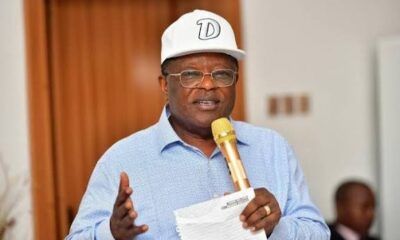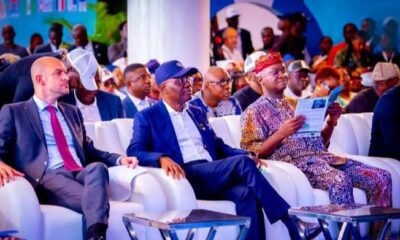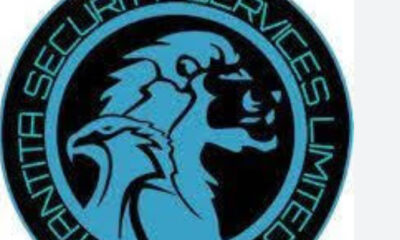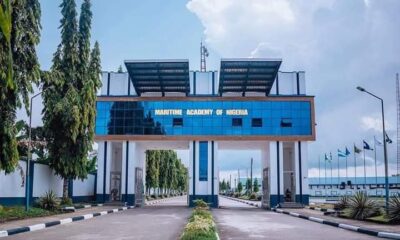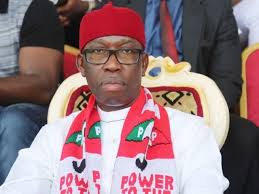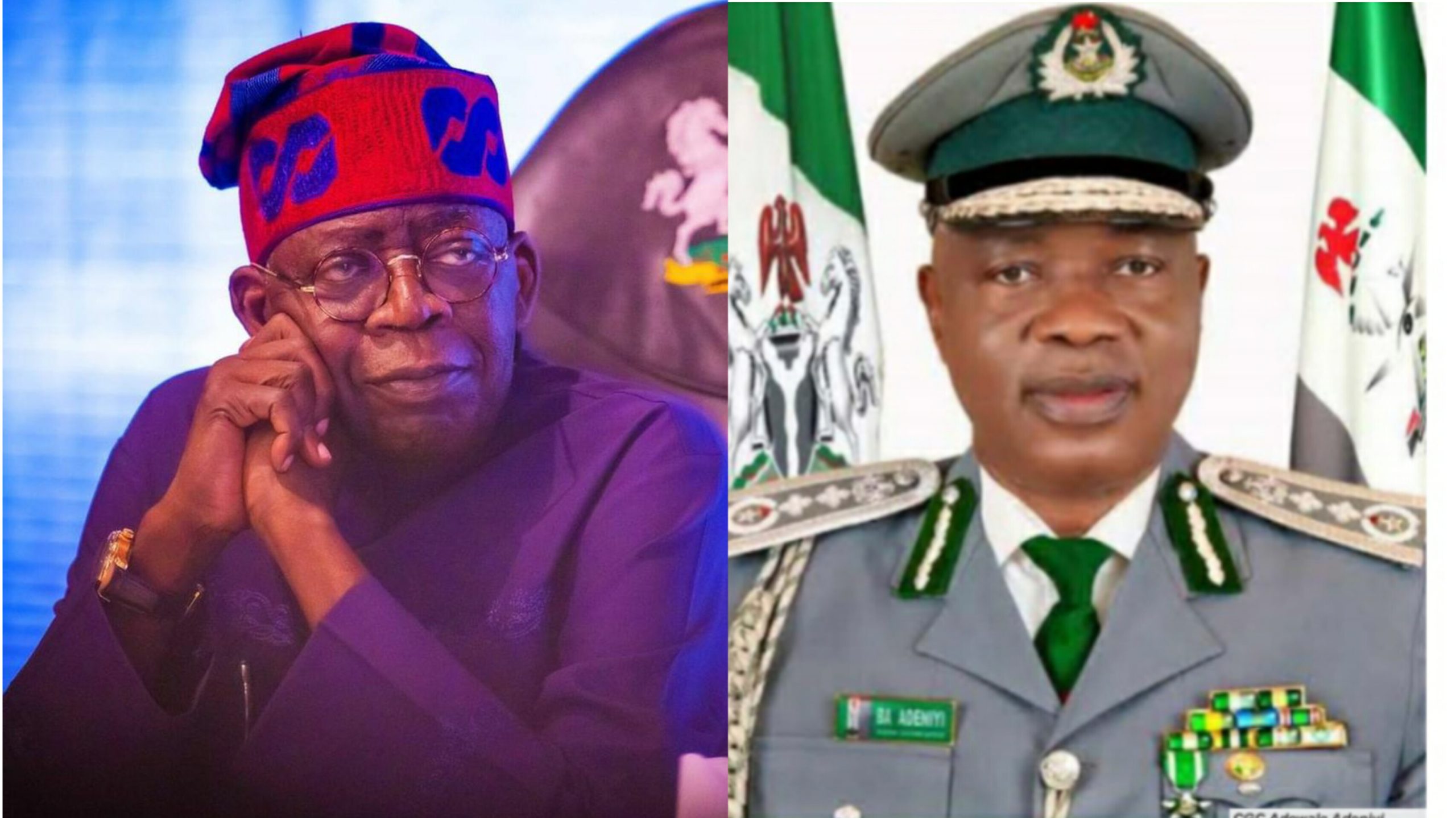Politics
David Umahi’s Arise TV Meltdown: A Symptom of APC’s Accountability Crisis

BY EGUONO ODJEGBA
In a democracy, the press is the oxygen of accountability. But when a government official like Minister of Works David Umahi attempts to suffocate that oxygen with arrogance and intimidation, it reveals a deeper rot in the system he represents.
The recent live altercation between Umahi and Arise TV anchor Rufai Oseni over the Lagos-Calabar Coastal Road project was not just a clash of personalities—it was a window into the APC-led administration’s disdain for transparency.
Disrespectful buzz words like “Who Are You?”, is clearly is not only an act of official aggression but a tactical form of defence against lawful media interrogation. During a heated exchange on The Morning Show, Umahi lashed out at Oseni, telling him to “keep quiet” and dismissing him as “too small” to be reported to President Ahmed Bola Tinubu.
Oseni had dared to question the minister’s apparent twisting aimed at ignoring the question of accountability when Oseni pressed for clarity on the cost and scope of the Lagos-Calabar Coastal Highway. Instead of answers, viewers got a tirade, plus claims of self-proclaimed title of “Professor of Engineering”.
This wasn’t just a personal insult—it was a calculated attempt to browbeat a journalist into silence. It’s a tactic familiar to many in Nigeria’s media landscape, where fiery voices like Oseni’s are often met with threats, smear campaigns, or outright censorship.

The Coastal Road Conundrum athe heart of the clash lies the multi-trillion-naira Lagos-Calabar Coastal Road, a flagship infrastructure project of the Tinubu administration. Critics, including Governor Seyi Makinde, have questioned the cost per kilometre, calling it opaque and inflated. Umahi’s response? More bluster, less clarity. With an equal venom of disdain, he challenged Makinde to a public debate, but still failed to provide a breakdown of the figures.
If the minister cannot—or will not—explain how taxpayer money is being spent, then he has no business holding office. Public infrastructure demands public scrutiny, and Umahi’s refusal to engage constructively with journalists is a dereliction of duty.
Accountability starts at the top, President Tinubu must decide: is Umahi acting on his own, or is he executing a broader strategy of obfuscation? If the minister’s behavior reflects the administration’s stance on transparency, then Nigeria is in trouble. But if Umahi is a rogue actor, then the President must sack him immediately. Anything less would suggest complicity.
Rufai Oseni’s fearless questioning is a reminder of what journalism should be—unflinching, informed, and unafraid. When politicians fear journalists more than they fear corruption, it means the press is doing its job. But it also means the public must rally behind these voices, lest they be drowned out by the noise of power.
In the end, the question isn’t “Who are you?”—it’s “Who do you serve?” If Umahi serves the people, he must answer to them. If he serves only power, then he must be held accountable by it.
This official conspiracy by stalwarts of the APC to seek to undermine Rufai Oseni through deliberate tactics to avoid accountability in preference for reckless TV Set misbehavior and unacceptable rascality must stop.

